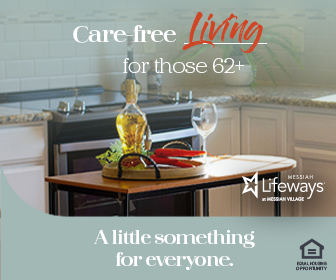As I mentioned in last week’s blog, part 1 of this 3 part series, one of the biggest challenges that a caregiver can face is helping an aging parent or loved one choose the right place to move when living at home is no longer an option. This includes those living alone with help coming into the home, and those who actually live with their primary caregiver. The willingness to admit there is a need for change is the first step in what should be a consensual decision to find the right nursing home, or personal care home, or today’s main focus, an assisted living residence.
Last week’s blog focused on choosing the right personal care home for your loved one. And while many of the tips and ideas are almost identical to choosing an assisted living, we have to again differentiate these two similar yet different levels of care specific to Pennsylvania. For the long version please refer back to my blog from March 2013. For those who want the abbreviated version, here goes. Up until January 2011, facilities like Bethany Village, Country Meadows, and Messiah Village offered a level of care called “assisted living”; however, they were all licensed as personal care homes by the PA Department of Public Welfare (DPW). Technically the term assisted living was inaccurate, but sounded more appealing, so that’s what most providers went with and identified themselves as. Meanwhile, legislation was brewing for nearly a decade in the Commonwealth that would change all of this and looked to create an alternate level of care to nursing care and personal care for aging and disabled Pennsylvanians. The goal was to create another option for care that promoted, provided, and allowed more care than what a personal care home could do. It was also meant to reduce or offset the need for the heavier care and more expensive option of a nursing home. The basis was to serve the gap or niche of clients that fell between these other two levels. This new level became known as an Assisted Living Residence (ALR), and it finally became a reality in January, 2011. From that point on in Pennsylvania, a facility had to be licensed as a Personal Care Home (PCH) or an Assisted Living Residence. They were no longer one and the same.
However, this reality has been a bit less than stellar. One of the other main differentiators of assisted living residences was supposed to be means-tested reimbursement through Medical Assistance to help pay for those who could not afford it privately. That, unfortunately, has not become reality due to state budget issues. The recycling of the name “assisted living” has also created much confusion for consumers, plus many healthcare professionals are still using assisted living and personal care interchangeably. Another problem has been a lack of interest by many facilities across the state to change their offerings and licensure to an ALR. For some companies it could require them to structurally alter their buildings and increase the square footage in resident rooms and would require more staffing and additional training. Consequently, the monthly costs would also likely increase; although it would be less expensive and provide a more homelike setting than most nursing homes. Unfortunately, a year and half later, there are still only about 2 dozen or so assisted living residences spanning 12 counties in PA, while there remains well over 1200 personal care homes located in just about every county across the state. Locally, Bethany Village and Columbia Cottage are the only two communities licensed to provide assisted living. Time will tell if ALRs are truly a viable option. I hope they are.
I digress – back to the topic at hand. Whether you are looking at a personal care home or at one of the scant assisted living options across the state, the same principles apply. First to locate the elusive ALRs, contact your county Area Agency on Aging, because the state’s online ALR directory is currently not available. They should be able to tell if one exists close to you. If so, you’ll want to ask for the facility contact information, whether it’s for-profit or non-profit, and most importantly access to the inspection surveys.
Just as with a personal care home, be sure to call for availability and ask about admission criteria and financial guidelines. Remember, you’ll want to streamline your list before you start to schedule one of the most vital steps, which is taking a tour. Again, schedule mom to have lunch or partake in an activity or ask if they have an ambassador program where they can speak directly with another resident one-to-one. Get copies of the menu, activity calendar, and newsletters. Don’t forget to ask about a respite program to let mom stay for a week or two to “try it out.” And finally don’t forget that, with non-profits in particular, you’ll want to ask if a benevolent or charitable care fund exists to pay for their care once your loved one’s assets are depleted.
As far as the question I mentioned last week about what happens when your loved one needs more care, this is where assisted living residences differ a bit from personal care homes. Its main concept is to help residents “age in place,” stay put, and get more care into them rather than moving them onto a nursing home. However, there still may be a point where nursing care may be needed if their medical treatment and care requires daily oversight by a physician and 24 hour care by a licensed nurse.
Lastly, and I cannot stress this point enough, whether it’s a personal care home or assisted living residence, do your research sooner rather than later. Don’t make such an important decision without thoroughly researching the options ahead of time.
For more tips and information about choosing the right assisted living home for a loved one, please contact the Coach at 717.591.7225 or email coach@messiahlifeways.org.
Please stay tuned next week for the third and final part of this series, as we cover how to choose the right Nursing Home (Part 3).
by: Matthew Gallardo, Messiah Lifeways Coach





